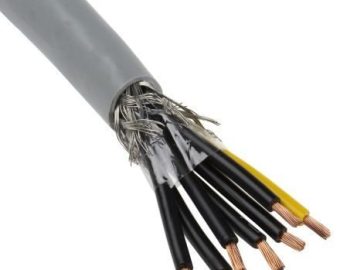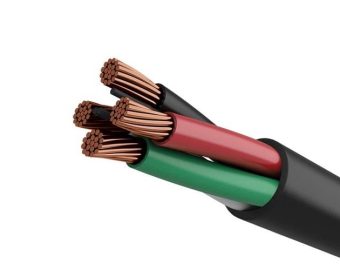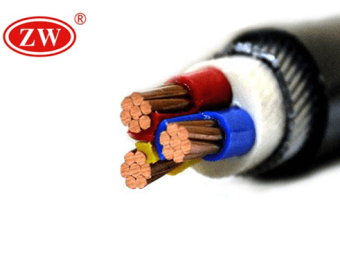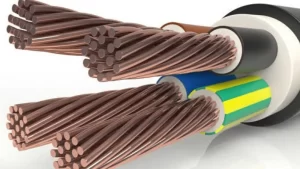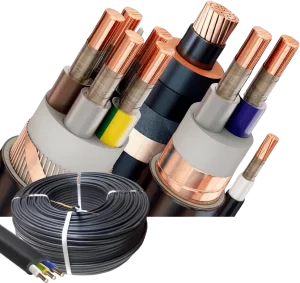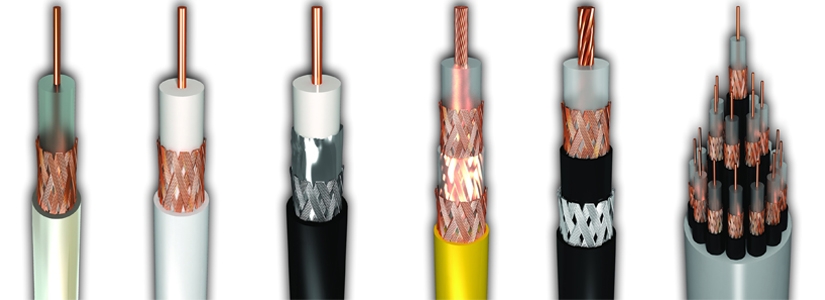- Leading Cable and Wire Manufacturer-ZW
- Industrial cable
Industrial Cable
- According to IEC and BS
- PVC and PUR Sheath
- Approved by GB, CE, VDE
- In stock
Industrial Cable Types
Industrial Cable: A Perfect Combination of Quality and Affordability
In the world of electricians and engineers, the term “industrial cable” describes various insulated electrical wires. Primarily, these cables are used in high-voltage applications and are designed to carry large currents. While the specific design of an industrial cable will vary depending on the application, they all have one thing in common; they need to be able to withstand a great deal of abuse.
Generally speaking, industrial cables encounters much more demanding service conditions than those used in the home. They are often required to carry heavier loads over greater distances and are also subject to harsher environments. As a result, industrial electrical wire and cable need to be constructed from materials that can withstand these conditions. This article further explores what an industrial cable is, its typical applications, and the different types that are available on the market. Let’s get started!
What is an Industrial Cable?
An industrial cable is an electrical wire or cable used in an industrial setting. This can include factories, warehouses, and other similar settings. Industrial cables are typically thicker and more durable than standard electrical wires or cables, as they need to withstand a harsher environment.
Industrial cable serves various purposes in the automation and manufacturing industries. This category includes LSZH and PVC insulated and sheathed cables, commonly known as Europe control cables. While popular in Europe, these cables are also used in North America and worldwide.
With the advancement of technology, some companies have even developed special approval cables that are flame retardant. Many industrial cable types are now made with this feature to help prevent fires in the workplace, including industrial jumper cable, industrial control cable, and industrial power cable.
What is the Wire and Cable Industry?
Industrial wire and cable are used to conduct electricity in various settings, including factories and construction sites. This type of industrial cable is typically made from copper or aluminum. For ratings of 600 volts or less, the NEC (National Electrical Code) requires that all installations use THHN/THWN-2 wire and cable. This type of insulation is resistant to both heat and moisture.
The electrical cable industries typically use two types of insulation on their product, PVC and rubber. The insulation type depends on the application in which it will be used. For example, many industrial applications require a flexible industrial cable, so rubber is often used as the primary type of insulation. Other applications might not require as much flexibility so PVC can be used instead.
Industrial electrical wire and cable are used in a variety of applications, including:
- Power distribution
- Control circuits
- Lighting
- Machinery
- Signal and communication systems
These cables usually comprise one or more conducting wires, with an insulation layer surrounding them. The wire and cable industry refers to businesses manufacturing cables and wires. The international wire and industrial cable market was valued at USD 102.15 billion in 2018 and is expected to reach USD 146.59 billion by 2025, growing at a CAGR of 5.5% from 2019 to 2025. Industrial Cable industries serve a vital role in the development and progress of many economies by providing the infrastructure for power generation, transmission, and distribution.
What type of cable is used in the Industrial?
Different types of cables are used in the industry, depending on the application. Not only the kind of conductor but also the type of insulation and jacketing are other. For example, you will use various industrial electric wire and cable in an office building than in a manufacturing environment. The main types of wires and industrial cable used in industries are:
Industrial Control Cable
Industrial Control Cable is used for various purposes in industry. These include providing power to motors, lights, and other equipment. They are also used for wiring control panels and other devices. With the help of these cables, industries can monitor and control the working of their machines.
Industrial Power Cable
Industrial Power Cable is used to supply power to various machines and equipment in an industry. These cables are generally made of copper or aluminum and are available in different sizes and voltage ratings such as single-phase, three-phase, and four-phase. PVC and XLPE are the most common insulation materials used for these cables.
Industrial Jumper Cable
Industrial Jumper Cables make the temporary connection between two points in an electrical circuit. It is also used for making emergency repairs to an electrical circuit. Jumper cable is an industrial electrical cable made up of two insulated wires connected at one end. The other end of the jumper cable has two alligator clips that are used to connect the jumper cable to the electrical circuit.
PVC industrial cables are made of high quality materials and are extremely versatile. They can be used in a variety of applications, including electrical wiring, automotive wiring, and plumbing. They are also resistant to abrasion, making them ideal for use in high traffic areas. In addition, PVC cables are flame retardant and have a high melting point, making them an ideal choice for use in industrial settings. These cables are available in a variety of sizes and colors, making it easy to find the perfect cable for your needs.
PUR cables are used in many industries as they offer good resistance to abrasion, heat, oil, grease, and chemicals. These cables are also resistant to flame and have a long service life. These cables exhibit significant properties like flexibility and are easy to install. In the industrial sector, PUR cables are mainly used for data transmission.
Furthermore, many other cables are used in industries, such as computer cables, data cables, telephone cables, fiber optic cables, etc. Each type of industrial cable has its specific use and importance in the industry.
Furthermore, many other cables are used in industries, such as armoured cables, pv wire, house wire, medium voltage cables, etc. Each type of industrial cable has its specific use and importance in the industry.
How to select a suitable Industrial cable?
The industrial internet of things relies on high-speed, long-distance wired connectivity for data and power. The demands of these applications often fall outside the capabilities of off-the-shelf COTS cables, which are designed for lower data rates and shorter link lengths. When specifying industrial cable for an industrial application, it is essential to consider data rate and distance. The other main factors for consideration include:
Power handling:
Since many applications in Industry 4.0 will require industrial cable to transmit data and power, it is essential to consider the maximum amount of power a given industrial cable type can handle. Many COTS cables are not designed to handle high power levels, so they may need to be replaced more frequently.
Data Rate
The data rate requirements of an application will dictate the type of industrial cable needed. For example, twisted pair cable is suitable for applications with data rates up to 100 Mbps, while fiber optic cable is necessary for applications with data rates of 10 Gbps or higher.
Distance
The maximum distance a signal can travel without degradation is another important consideration. For example, twisted pair cable typically has a maximum length of 100 meters, while fiber optic cable can often transmit signals over much longer distances.
Cable Conductor
The material used to construct the cable’s conductor also plays a role in determining its suitability for an application. For example, copper is a good choice for applications that require low resistance and high conductivity, while aluminum is often used in applications where weight is a primary concern.
Cable Jacket
The type of jacket or sheath surrounding the cable’s conductor is also essential. For example, PVC is a common choice for applications where flexibility is required, while plenum-rated jacketing is necessary for applications where the industrial cable will run through air ducts. Polyethylene is another common type of industrial cable jacketing that is often used in outdoor applications. In harsh EMI/RFI environments, the shielded industrial cable is often necessary to prevent signal interference.
Cables used in industrial applications must be able to meet various challenges, including high data rates, long link lengths, and harsh environmental conditions. When specifying cable for an industrial application, consider all of the relevant factors to ensure that the industrial cable chosen can meet the application’s specific requirements.
Where to buy Industrial cable?
Industrial cable wire is essential in many industries as it provides power to various machines. It is also used in wiring systems where high voltage or current is required. You can buy industrial cable in many places, such as online stores, electrical wholesalers, and hardware stores. Industrial cable suppliers usually have a wide range of products that you can choose from.
ZW cables are one of the leading industrial cable manufacturers in China. We also offer custom industrial cables, services, and a wide range of products. As a customer-centric company, we always look for ways to serve our customers better. For flexible applications, we offer a wide variety of industrial cables designed to withstand extreme conditions. At ZW Cables, we understand that each customer and project is unique. We offer a wide range of stock and custom cable solutions. We offer everything from simple electrical cables to complex fiber optic solutions.
Conclusion
To conclude, industrial cable is an integral part of many industries. It is necessary for powering machines and equipment. Not only does it provide a safe and reliable power source, but it can also help improve your operations’ efficiency. When selecting an industrial cable, consider the type of application it will use, the length, and the voltage required.
Considering the above factors will help you choose the suitable industrial cable for your specific needs. Please contact our team of experts if you have any questions or need help finding a suitable industrial cable. We’re always happy to help!

